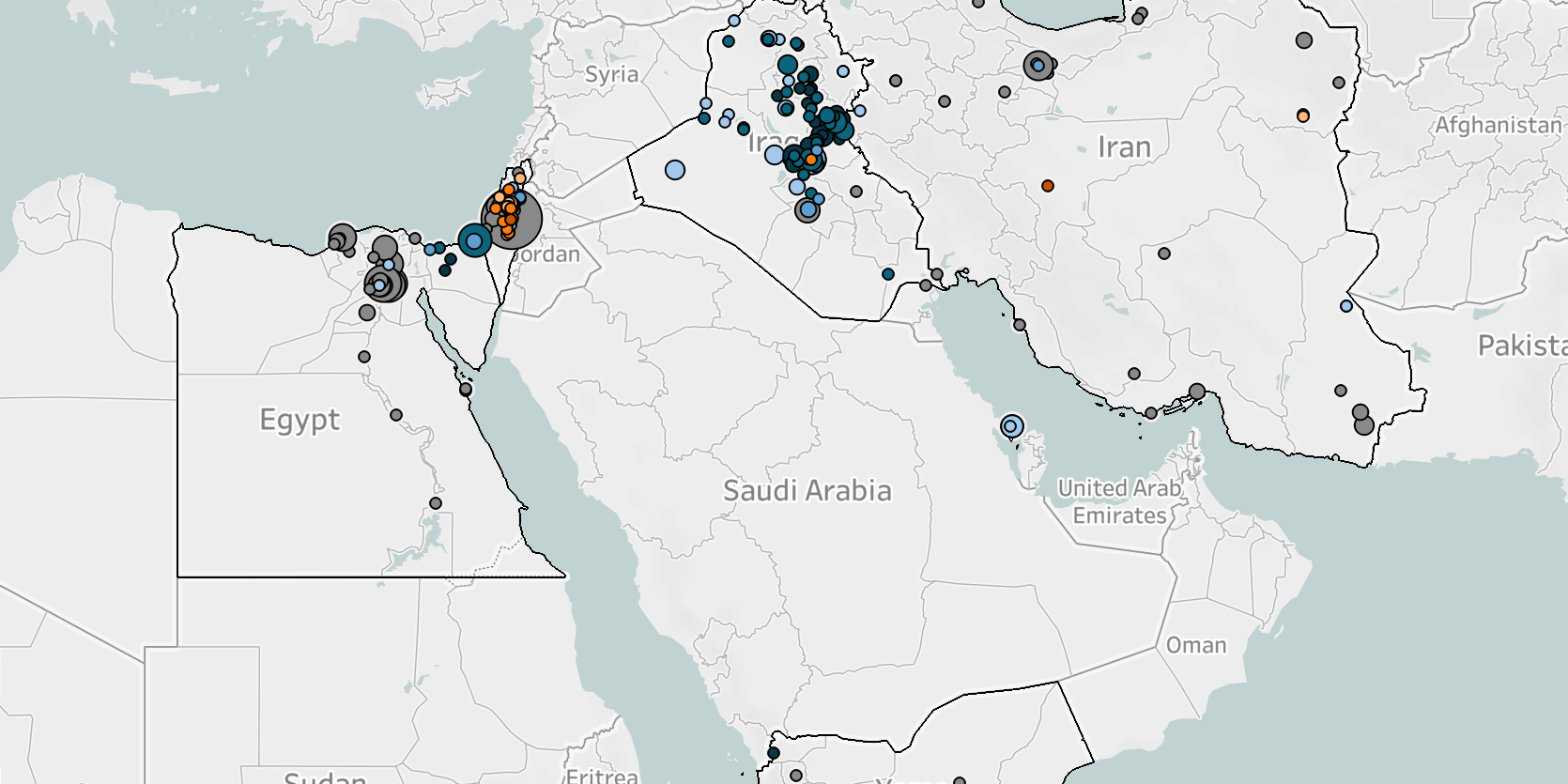Last week in the Middle East and North Africa, increased religious repression was prompted by religious ceremonies in several countries, while other governments codified laws targeting religious freedom. In Bahrain and Yemen, Shiite religious ceremonies and holidays were met with a number of restrictive measures targeting religious practice. In Iran, a bill curtailing already restricted internet freedoms is one step away from passing as law, at a time when the country is overtaken by anti-government protests. In Egypt, universities across the country have been instructed to prepare lists of employees with potential Muslim Brotherhood (MB) affiliation, to prepare for their dismissal. In Iraq, a suspected Islamic State (IS) attack took place against a funeral procession.
In Bahrain, the government implemented restrictive measures last week ahead of upcoming Ashura commemorations on 18 August, under the pretext of curbing the spread of COVID-19. Ashura, considered the holiest day in the Shiite Islamic calendar, commemorates the martyrdom of Hussain ibn Ali, grandson of the Prophet Muhammad, at the Battle of Kerbala. Among the measures, the government changed the coronavirus alert level from green to yellow, allowing for the restriction of religious events (News of Bahrain, 30 July 2021). At the same time, several governors held meetings with the directors of various hussainiyas and matams — congregation halls used by Shiite worshippers to perform religious ceremonies — to warn against congregating in people’s homes (Police Media Center, 29 July 2021). Bahraini authorities are reported to systematically target the Shiite population during these annual events (Bahrain Interfaith, 10 November 2014).
In Yemen, the Shiite Islamic holiday of Eid Al Ghadir (28 July), in which Shiites celebrate the Prophet Muhammad’s apparent appointment of Ali ibn Abi Talib as his successor, coincided with religious repression events in Houthi-controlled territory last week. Pro-Houthi authorities forced government employees to attend Eid Al Ghadir activities, and forcibly collected money from merchants and shop owners to commemorate the holiday (Al Asimah, 29 July 2021). Meanwhile, the pro-Hadi Ministry of Endowments and Guidance issued a circular to all governorate-level Endowments and Guidance offices, prohibiting the changing of imams, reportedly to avoid sectarian conflicts (Aden Al Ghad, 27 July 2021). However, with pro-Houthi forces having arrested or abducted multiple imams who did not align with their ideology in recent weeks, this circular could have been formulated as a symbolic show of force to pro-Houthi forces.
In Iran, a controversial Internet Censorship Bill passed in parliament last week, as anti-government protests sweep the country against electricity and water shortages. The bill, which still awaits the approval of the Guardian’s Council (RFERL, 1 August 2021), will intensify online censorship and further restrict already limited internet access in Iran. Meanwhile, Iranian police arrested citizens, including a government representative, for morality-related charges last week. Police also continued their campaign of persecution of Christian converts, with the arrest of a Christian convert on the charge of “propaganda against the state” (HRANA, 27 July 2021).
Last week in Egypt, the Supreme Council of Universities in Egypt instructed heads of public and private universities to prepare lists of employees suspected to belong to “terrorist groups” or the MB, to facilitate their likely dismissal (Al Araby Al Jadeed, 26 July 2021). The instruction follows the passage of an amendment to the Law of Dismissal without Disciplinary Procedure, which stipulates that any employee affiliated with the MB or on a “terrorist list” can be dismissed for non-disciplinary reasons (Egyptian Streets, 29 June 2021). Several human rights organizations decried the amendment as a clear violation of the constitution, which stipulates that “citizens shall not be discriminated against before the law because of political affiliation or for any other reason” (Rassd, 27 July 2021).
In Iraq, a suspected IS attack targeted a funeral procession in the Sunni-majority Salahuddin province last week, leaving at least eight people dead, including police and civilians. The attack reignited discussion on the security of largely Sunni-areas that are now under the control of the primarily-Shiite Popular Mobilization Forces (PMF). Some tribal leaders in the area are calling for greater US-led coalition presence (Al Monitor, 15 March 2021).
All ACLED-Religion pilot data are available for download through the ACLED-Religion export tool. Explore the latest data with the interactive ACLED-Religion dashboard.






